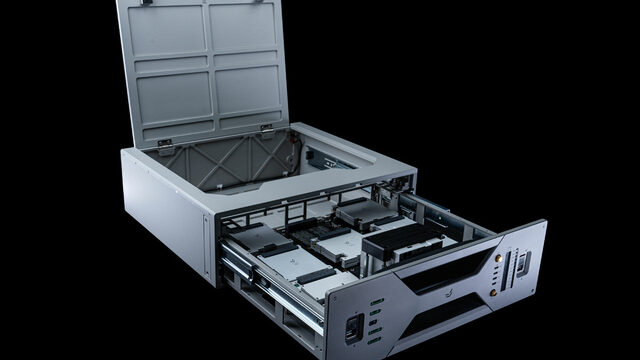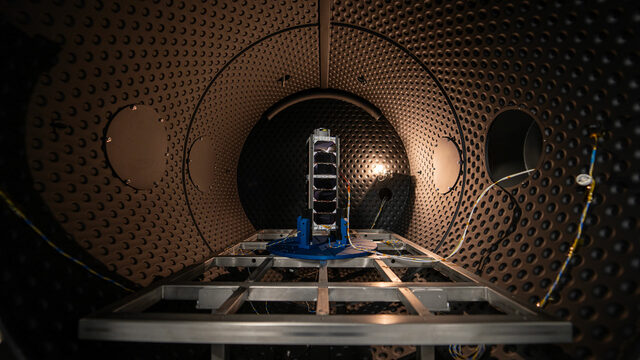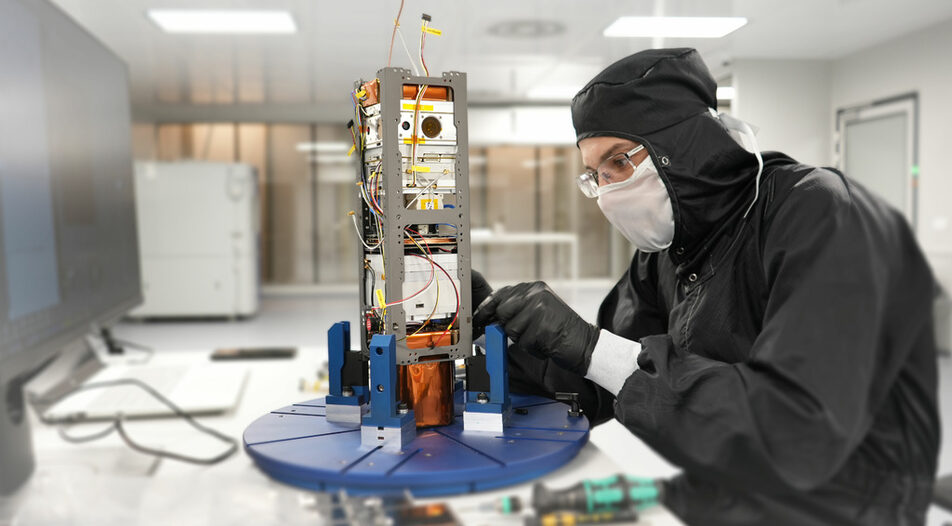For Bulgarian nanosatellite manufacturer EnduroSat 2023 is expected to be its strongest year yet. Business expansion was boosted by a 10 million dollar financial support the company received nine months ago from external investors led by European fund CEECAT Capital. EnduroSat will soon launch a new generation of satellites, further expanding its scope of operation.
Growth
According to preliminary unofficial results for last year, the company expects to report double revenue compared to 2022, or around 27 million levs (13.5 million euro). The team has grown, too.
"We hired 55 new people, and currently we have over 160 employees," founder and CEO Raycho Raychev told the Capital Weekly. The new hires include doubling the number of testing and assembly engineers, as well as tripling the engineers responsible for quality assurance. The company already has offices in six locations worldwide - Bulgaria, where its main activity is, Italy, France, Luxembourg, Germany, and the United States. The number of clients has reached 250.

Raychev is the main shareholder (50%) in EnduroSat, which was established in 2015, according to the Commercial Register. After CEECAT Capital's investment last year, a new offshore company - Luxembourg-based EnduroSat, was registered as the sole owner, so the other shareholders are not visible. Over the years, the company has attracted investments from other funds and business angels.
After completing its cleanroom project last year and expanding its satellite testing and assembly laboratories in Sofia, EnduroSat raised the number of satellites produced monthly to eight in the last two months of 2023. "Our ambition now is to create processes that will allow us to assemble and test up to 10 satellites per month, which eventually will be our norm," Raychev added.
Desktop satellite
Last year, the company patented its concept for a desktop satellite, DeskSat, which is a clone of an orbiting satellite. Useful payloads (cameras, sensors, experimental equipment, etc.), operations, as well as commands sent from the control room are developed on it, thereby reducing the risk of damage to the orbiting equipment.

"The main advantage of the desktop satellite is that it can be reused for each subsequent client mission, significantly reducing costs. DeskSat allows space engineers to develop and test their space solutions much faster, as well as optimize mission design and integration. That reduces the time needed for development and flight preparation by more than 80%, while costs are reduced by more than two-thirds," Raychev explained.
The company defines as an important asset the cleanroom it built last year. Although the investment exceeded the preliminary projections a bit, topping 5 million levs, the project was completed six months ahead of schedule by German contractor Viessmann Technologies. "The clean room allows us to prepare satellites in-house. Before that we had to assemble them at our partners' facilities and the space qualification tests had to be done at European Space Agency centers. That added at least two months to the process and cost huge financial resources," Raychev said.
Towards new horizons
EnduroSat's biggest project for 2024 is the creation of its first next-generation satellite, which will weigh over 100 kg (for comparison, current satellites weigh between 5 and 50 kg). It is expected to be completed within the first quarter of the year. The successful construction will allow EnduroSat to enter an entirely new segment.
The company will seek to shorten the time needed for the assembly, production, and operation in orbit of a satellite. The project will also be a test if the company's processes and knowledge of building nanosatellites can be transferred to satellites of a different type. "We plan to build new high-tech infrastructure," Raychev said. The company will seek to expand with a second facility, which will be twice as large as the current one.
For Bulgarian nanosatellite manufacturer EnduroSat 2023 is expected to be its strongest year yet. Business expansion was boosted by a 10 million dollar financial support the company received nine months ago from external investors led by European fund CEECAT Capital. EnduroSat will soon launch a new generation of satellites, further expanding its scope of operation.












